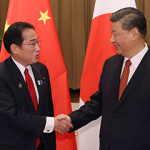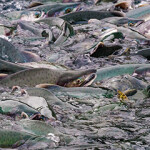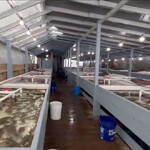NGO uses shareholder-sponsored proposals to push ocean plastic commitments

As You Sow, an NGO based in Oakland, California, U.S.A., is riding a wave of success from its tactic of borrowing the shares of activist investors to submit shareholder proposals aimed at securing greater corporate transparency and commitments on ocean plastic.
As You Sow focuses on changing corporate policy on topics like climate change or ocean plastics by engaging with shareholders, who in turn seek greater environmental commitments from the companies they are invested in. According to As You Sow Senior Vice President Conrad MacKerron, the tactic was slow to start at first, but has been gaining steam.
“Up until about a year ago, we would go in knowing that it’s virtually impossible that we’re going to get a majority vote, so it’s a matter of just trying to educate management and begin to educate investors to support these proposals,” MacKerron said. “There was a rule of thumb that if you got less than 10 percent they wouldn’t pay much attention to you, but once we got to 15 or 20 percent, they would be more responsive. They would return our calls and be willing to set up meetings. But this season, everything just exploded and the votes have been all over the place.”
He attributes the change to big investors like BlackRock and Vanguard aligning their policies with a range of ESG (environmental, social, and governance goals) issues.
In April, 81.2 percent of Dupont shareholders voted in favor of a resolution calling on the company to report on the plastic pellets it releases into the environment, despite management opposition. At grocery chain Kroger’s annual meeting in May, 45 percent of shareholders supported a proposal asking the company to reduce the amount of single use plastic in its operations. In June, 35 percent of shareholders at Amazon.com supported an identical As You Sow proposal.
Several other companies have already voluntarily committed to reducing plastic: Target Corp. and Keurig Dr. Pepper will cut virgin plastic 20 percent by 2025. Mondelez committed to a 5 percent absolute reduction, including a 25 percent cut in virgin plastic in its rigid plastic packaging. The amounts of cuts at PepsiCo and Walmart are still being finalized.
Attention-grabbing headlines on the issue have helped. MacKerrron acknowledged that the “2050 problem” – a widely reported claim by the Ellen MacArthur Foundation that by the year 2050 there would be more plastic in the ocean than fish – is just a “best guestimate,” mostly to get people’s attention. Further attention has been attracted by scientific studies that have found plastics in places people would never have dreamt that they would be, like the top of a mountain or in drinking water.
Recent reports by NGOs that have given new impetus to the demand for better management of plastic include “New Plastics Economy” by the Ellen MacArthur Foundation, “Break free from plastic” by Greenpeace, and “Breaking the plastic wave” by The Pew Charitable Trusts. The latter indicates that much more needs to be done, justifying As You Sow to go back to companies that had already made commitments and ask for more.
The question is whether the U.S. companies that commit are responsible for ocean plastic pollution in significant amounts. A 2017 study released by Helmholtz Centre for Environmental Research states that 10 rivers, mainly in Asia, are the source of 88 to 95 percent of the total plastic waste transported by rivers into oceans, which raises the question of whether efforts should be directed at establishing basic sewage, garbage collection, and recycling in these countries, rather that pressing U.S. companies for cuts.
However, MacKerron noted that until recently, the U.S. had been sending huge amounts of its plastic overseas to Asia for recycling.
“We dumped a lot of our stuff on Asia, and then Asia dumped a lot of that because they couldn’t use it,” he said. “And now China has said, ‘We’re not going to take a lot of this stuff’ because a lot of it is worthless.”
China banned imports of 24 categories of recyclables and solid waste in 2017. The year before, Chinese manufacturers had imported 7.3 million metric tons of waste plastics from developed countries.
The U.S. now has to figure out how to cost-effectively sort and recycle its own waste at home, but companies find it cheaper to use virgin polymers, as oil is now relatively cheap. MacKerron said that getting major companies to commit to using a certain percentage of recycled plastic may stimulate demand that will encourage the development of the domestic recycling infrastructure. He noted a 2020 commitment from Nestle to invest of up to CHF 2 billion (USD 2.18 billion, EUR 1.84 billion) to shift from virgin plastics to food-grade recycled plastics, and accelerate the development of innovative packaging solutions. Pepsi is another company that he said has committed to using recycled plastics.
Though it would seem fair that all companies should bear an equal burden and responsibility to improve management of plastics, MacKerron admitted that As You Sow tends to focus its shareholder advocacy tactic on big consumer goods companies.
“They tend to be more responsive to us because they know they have to protect their brand from public criticism and scrutiny,” he said.
He noted that extended producer responsibility (EPR) laws in Europe, which charge large producers upfront for the estimated recycling/disposal of the materials they enter into commerce would be more equitable. Some states, like Maine and Oregon, are considering such laws.
Ocean plastics have become a growing concern worldwide, with nations calling for action to curb marine plastics pollution. Organizations like the World Aquaculture Society have also highlighted the risks associated with plastics in aquaculture, and fishermen led organizations are working to clean up plastics as many fishers report seeing plastics in the belly of catches.
A recent study estimated plastic pollution in the ocean costs as much as USD 2.2 trillion (EUR 1.8 trillion) each year in terms of both environmental and social damage.
Photo courtesy of As You Sow






Share